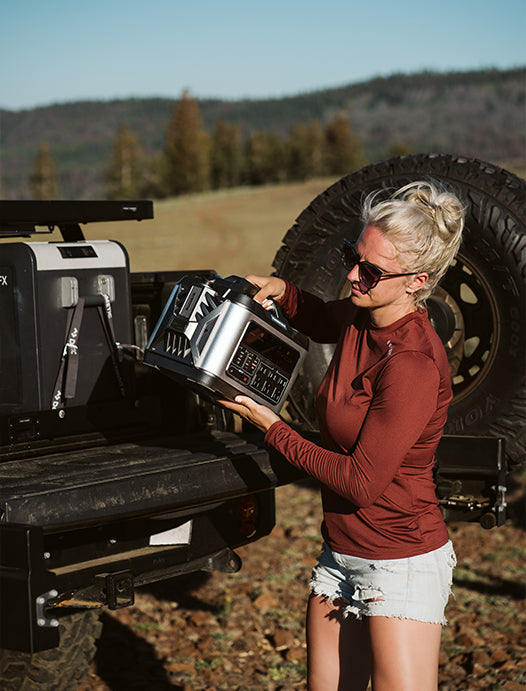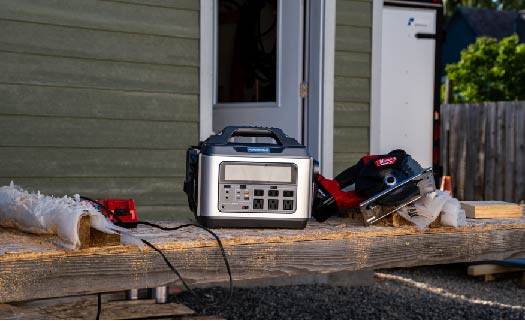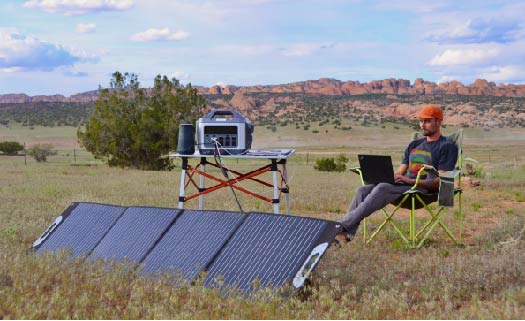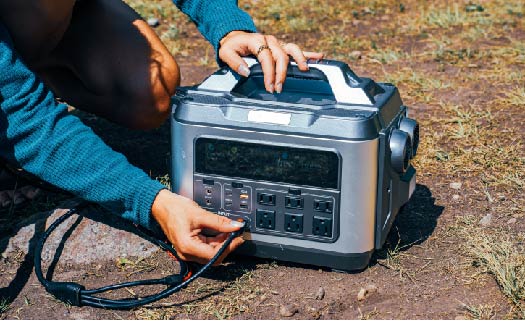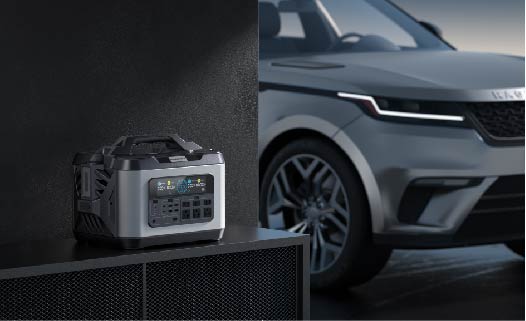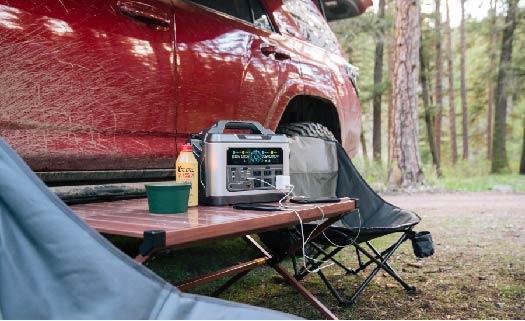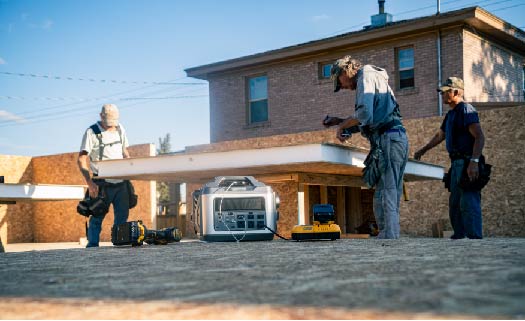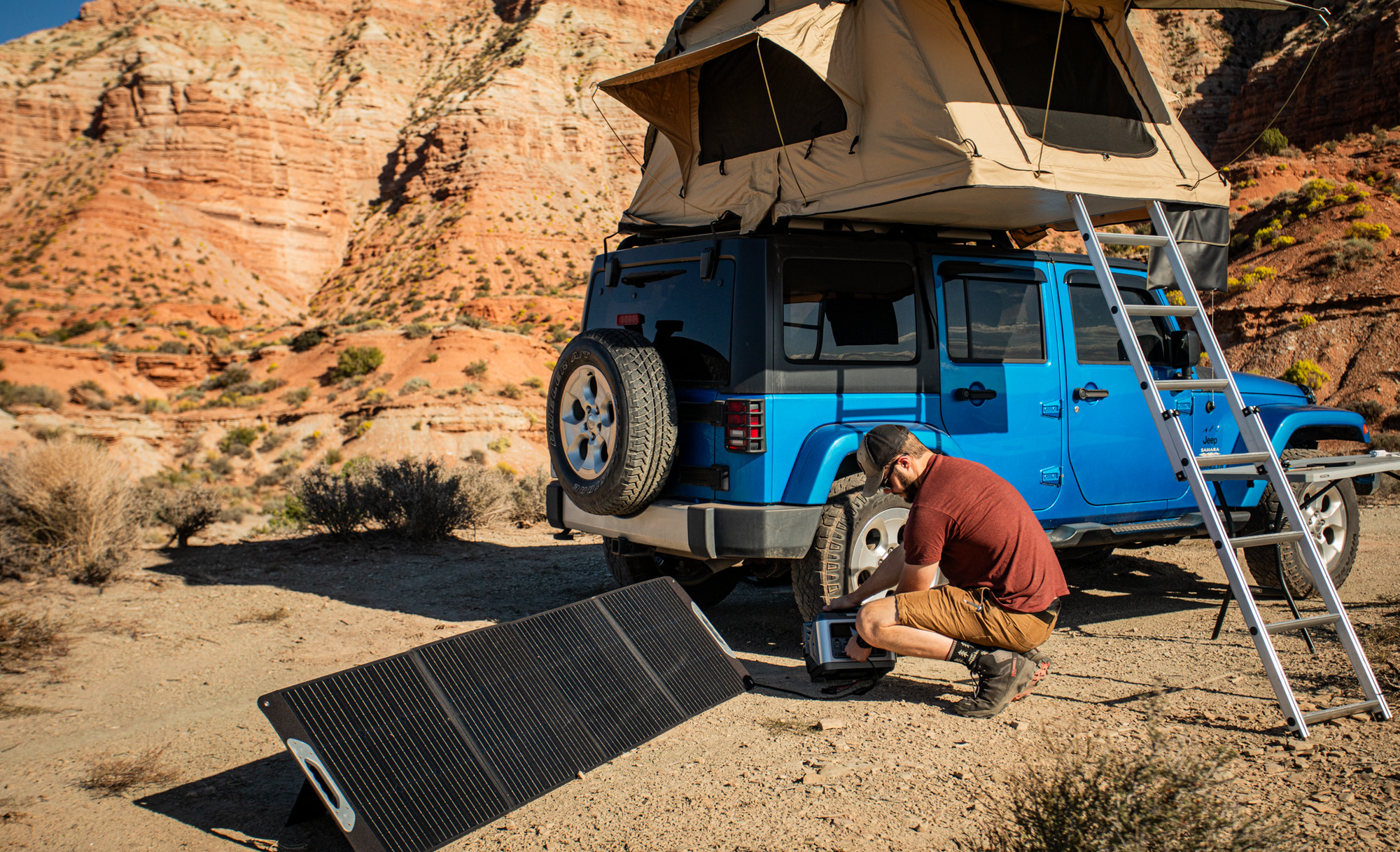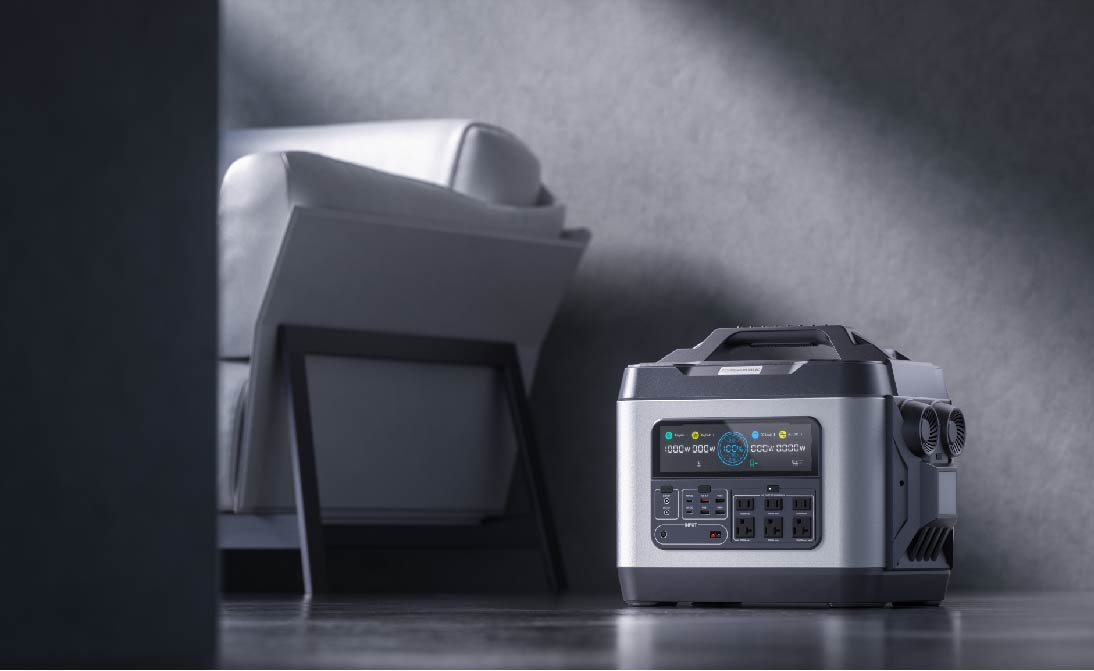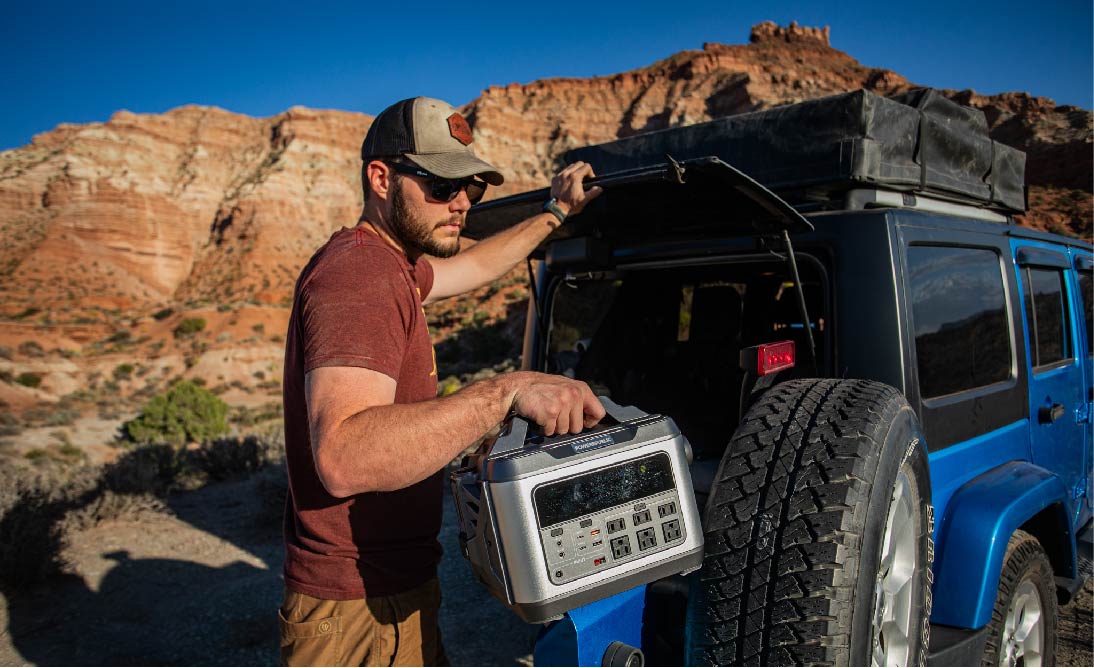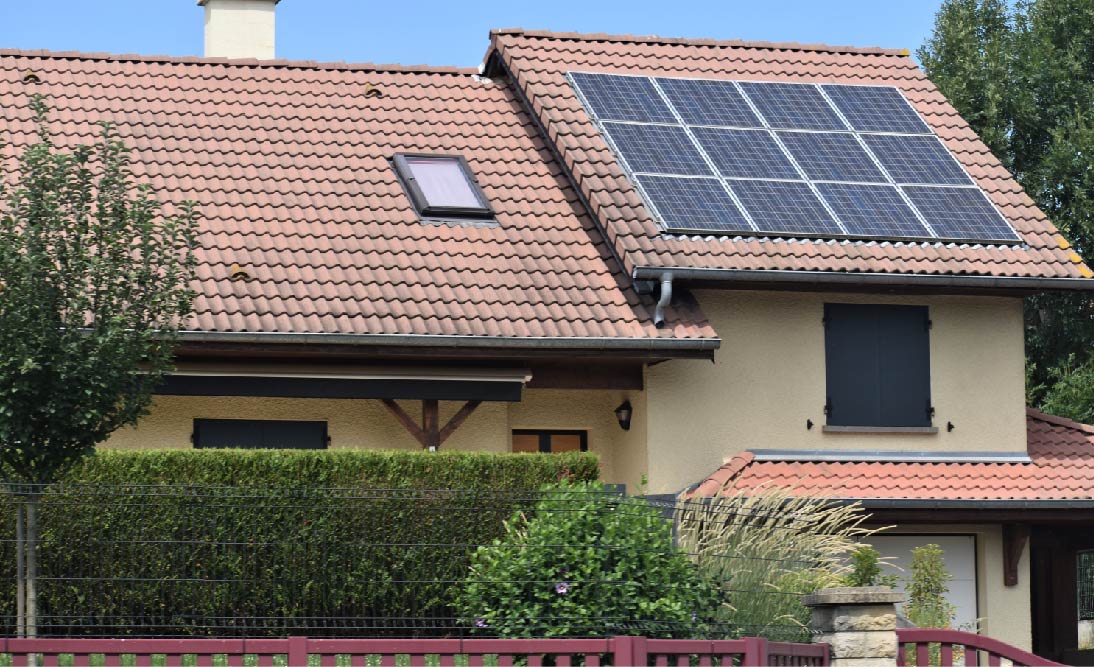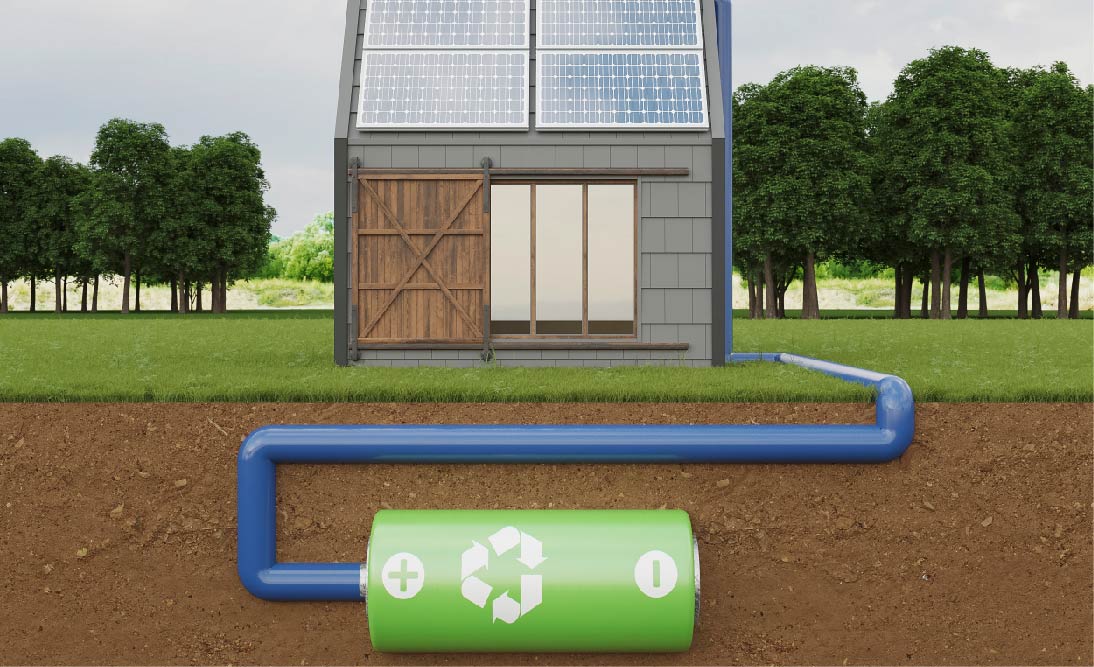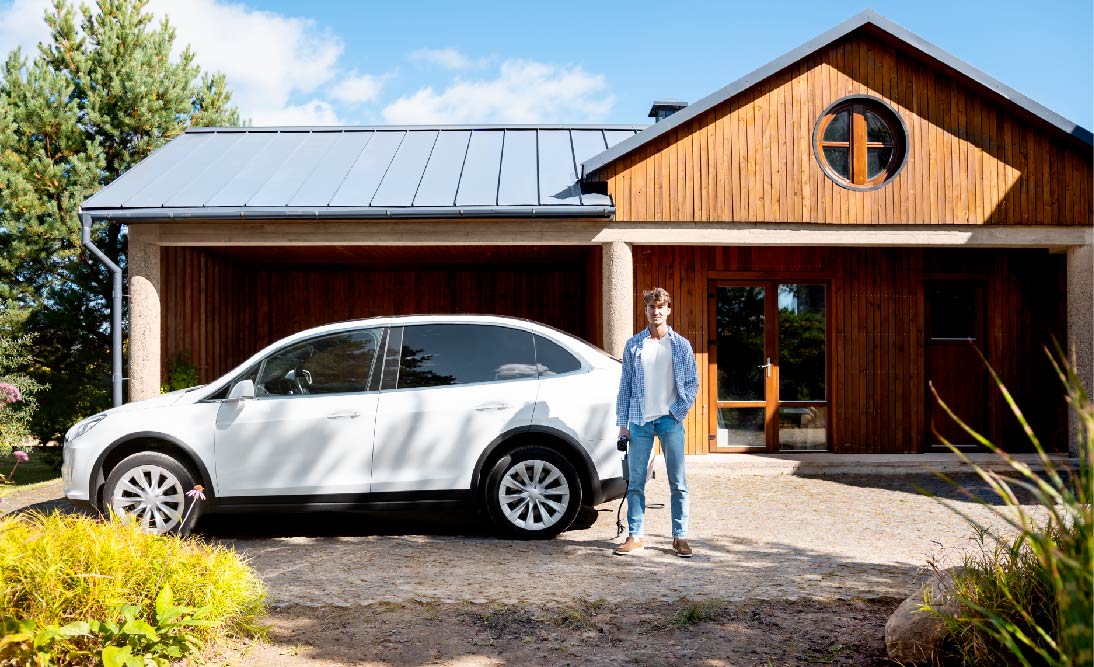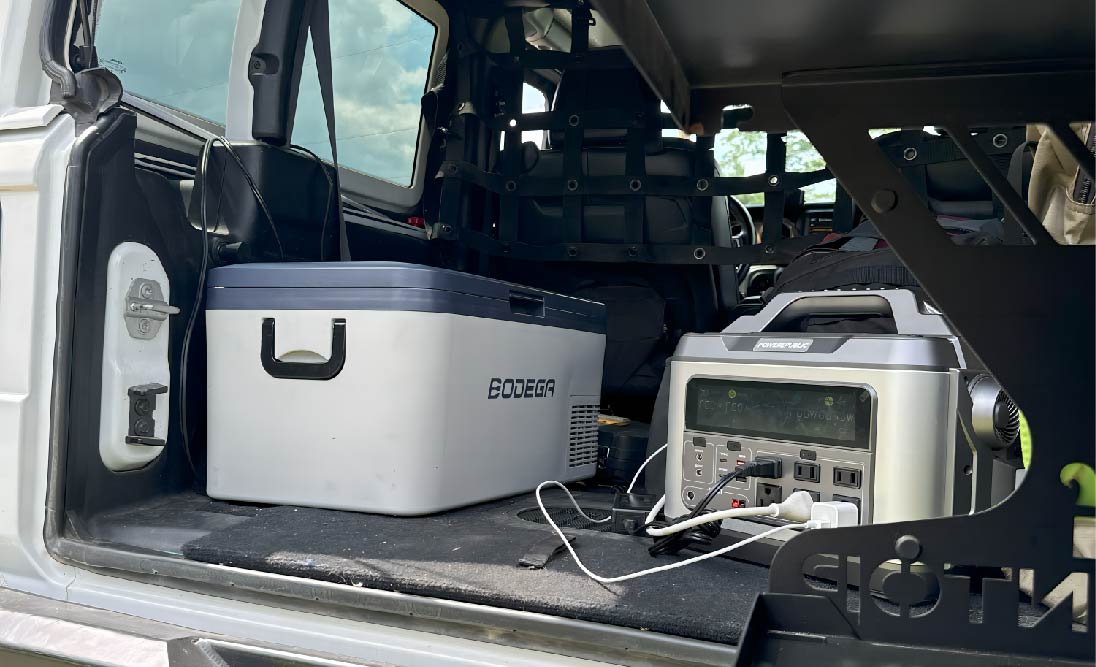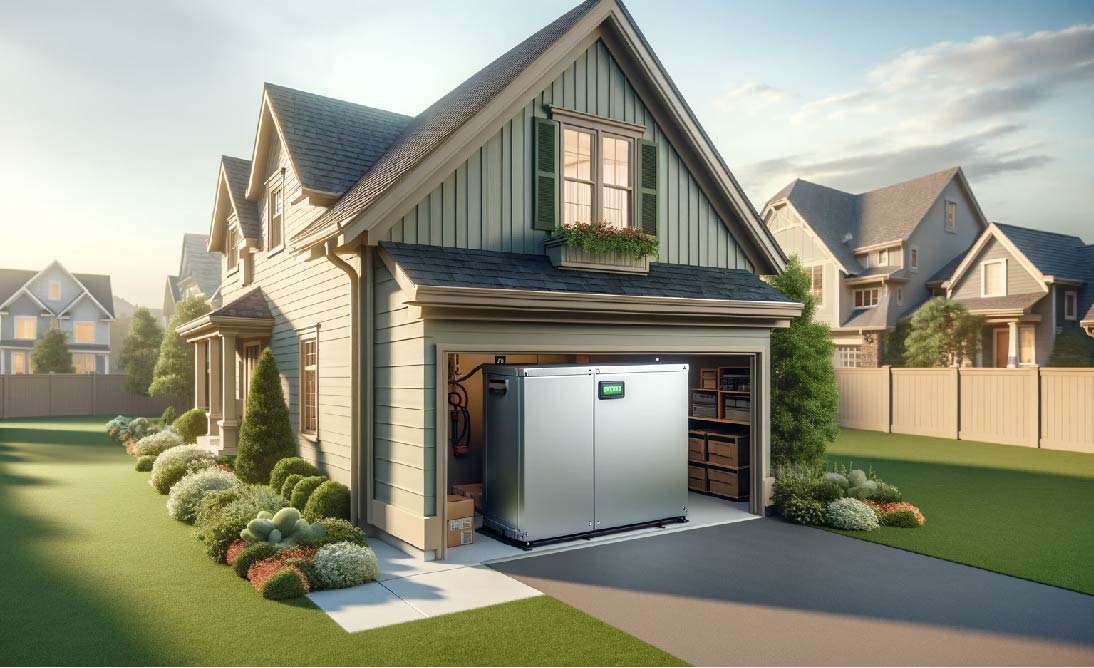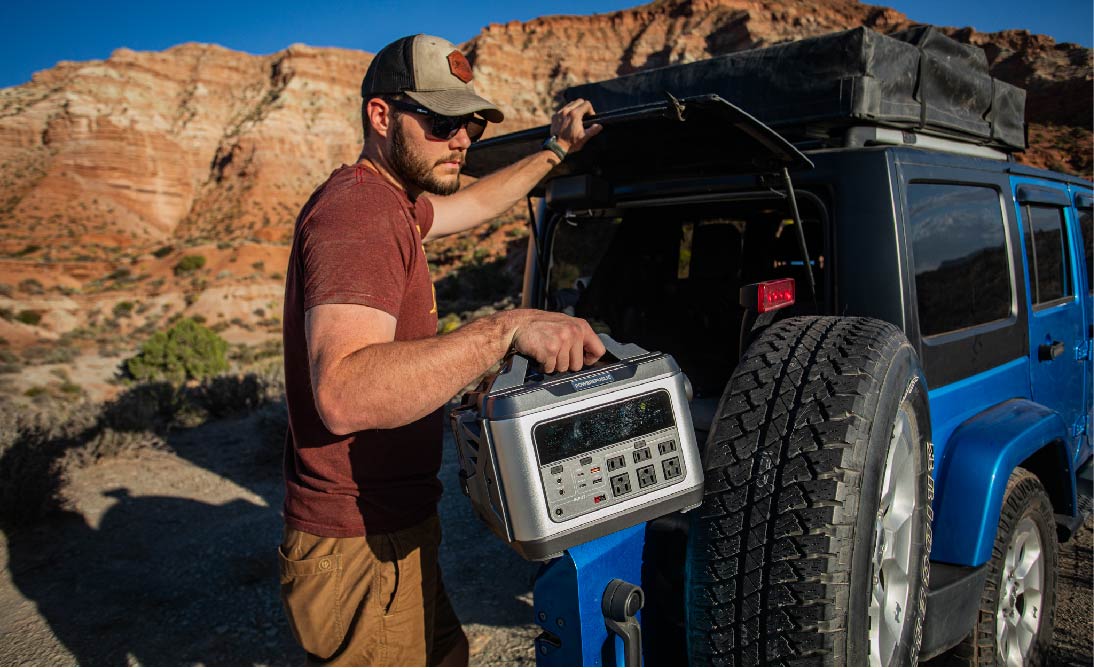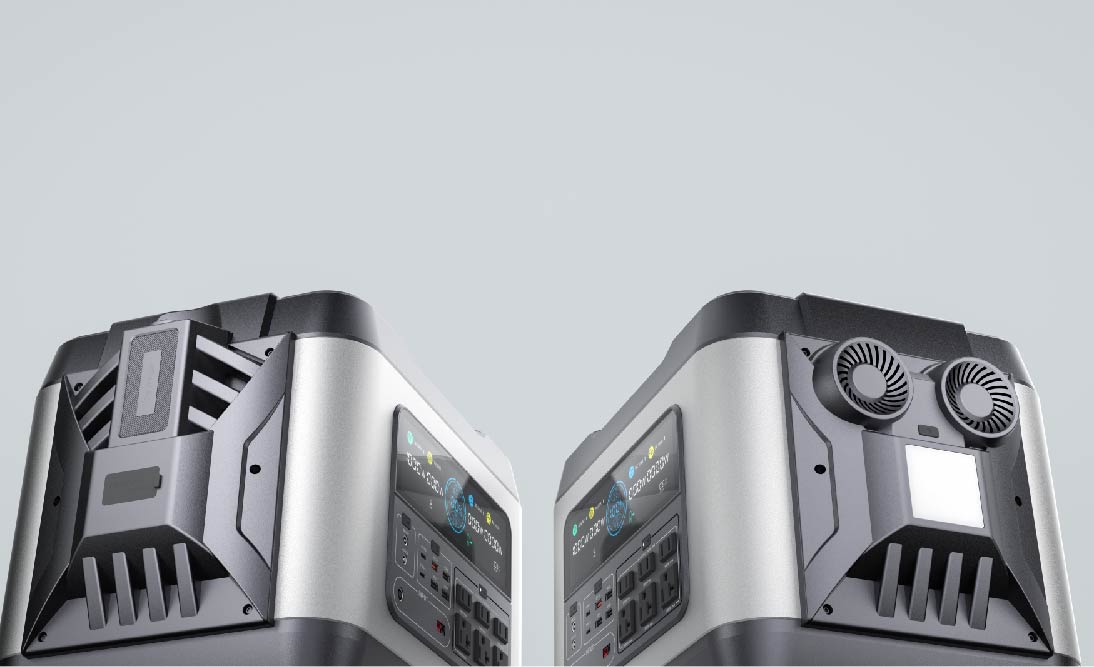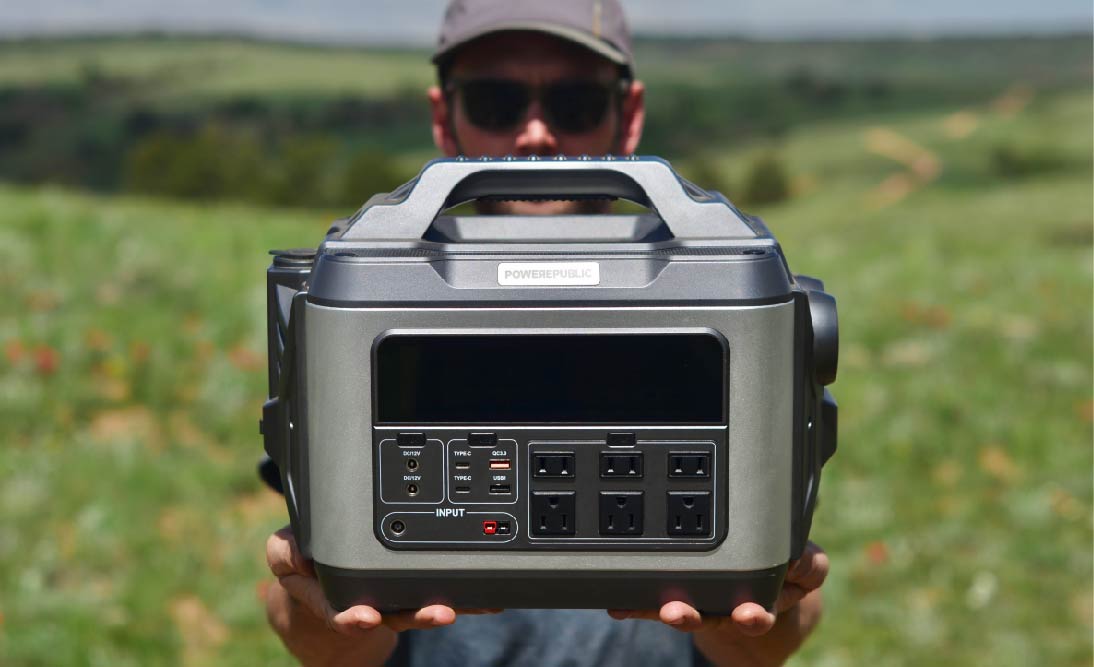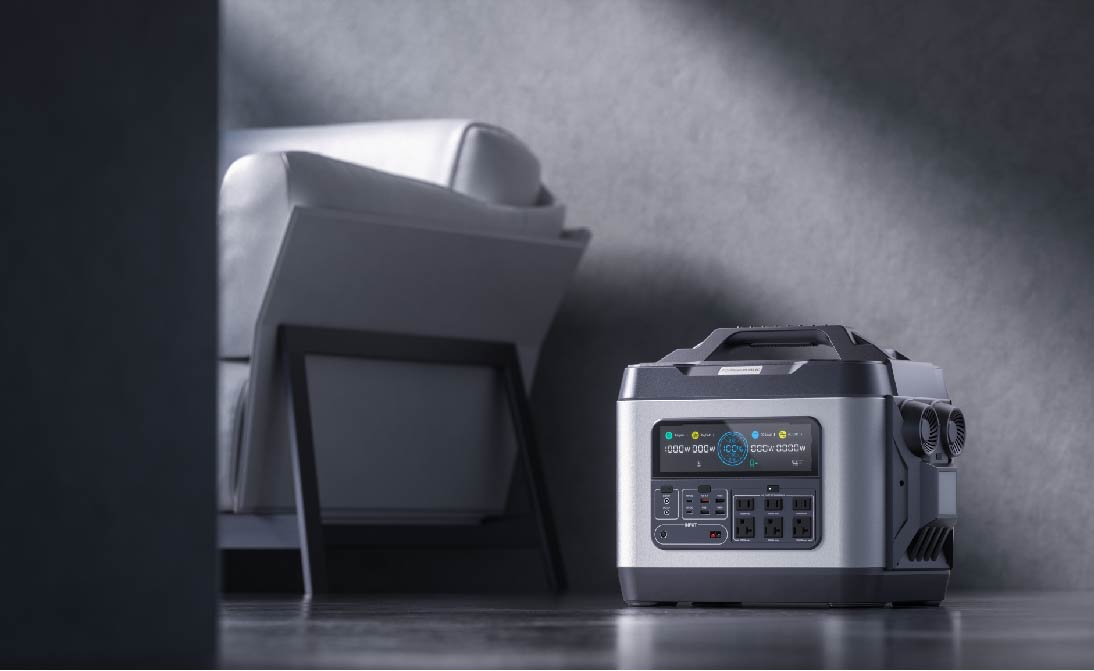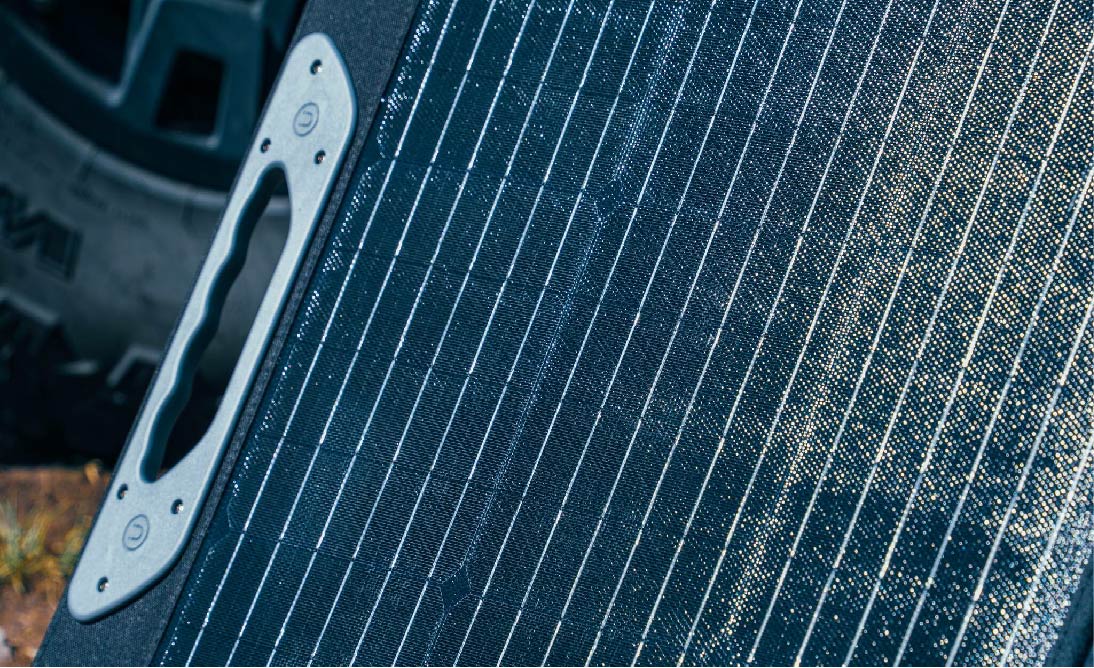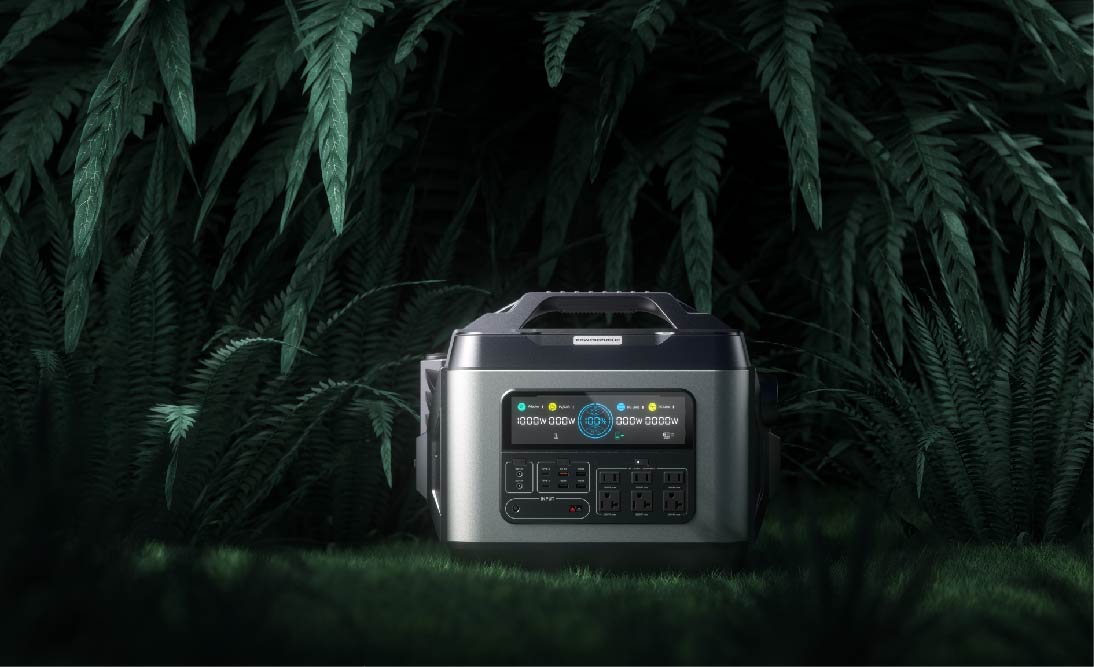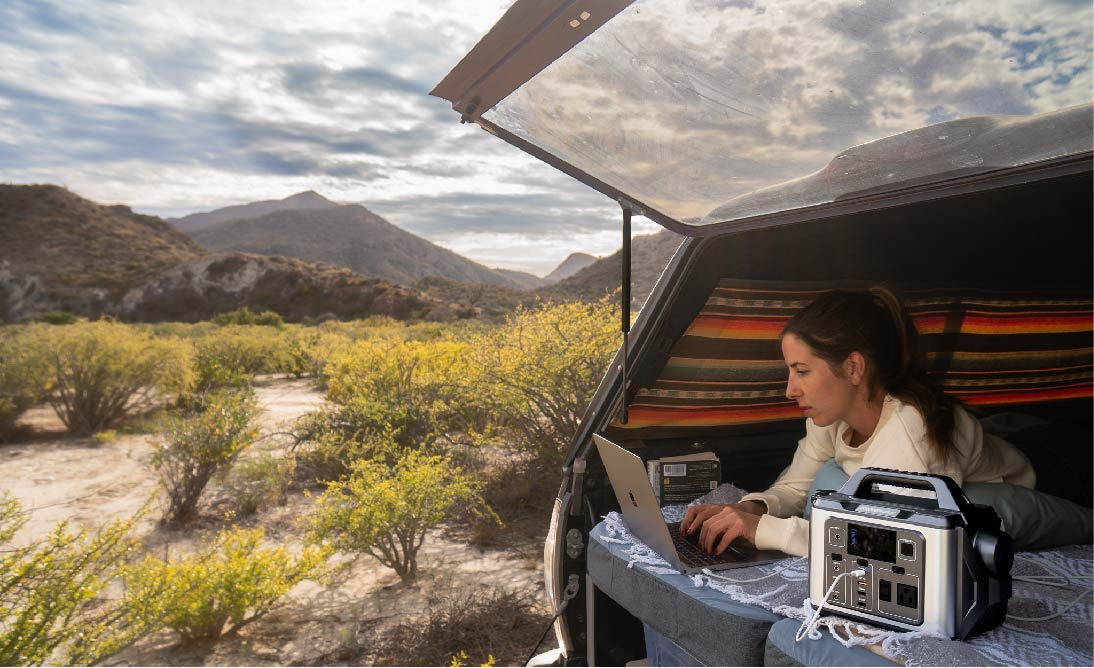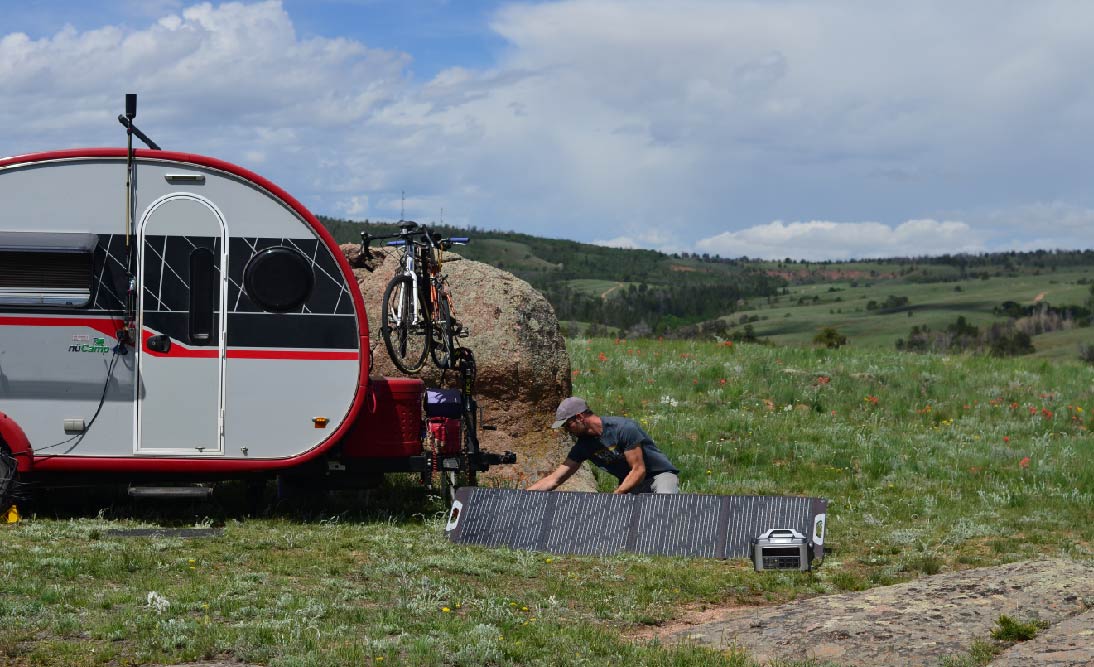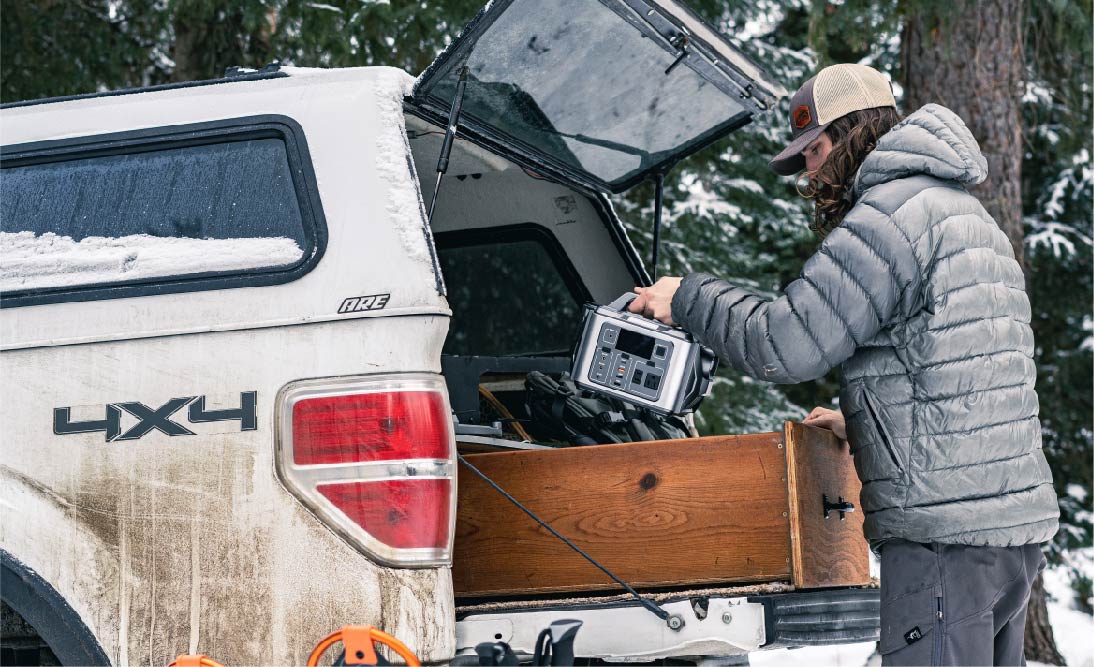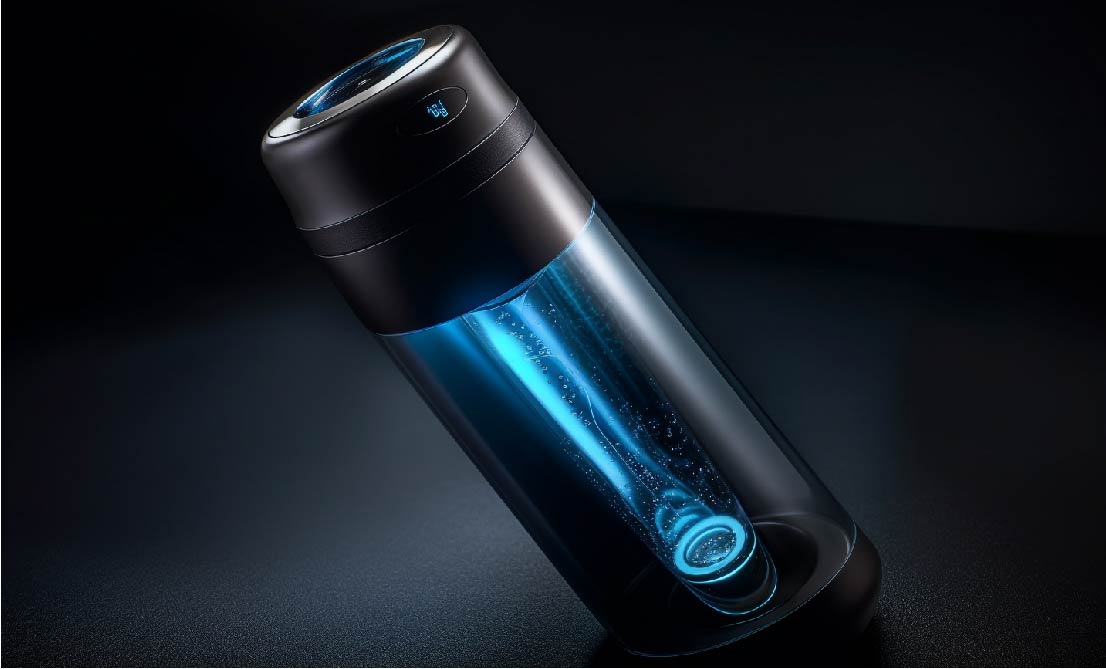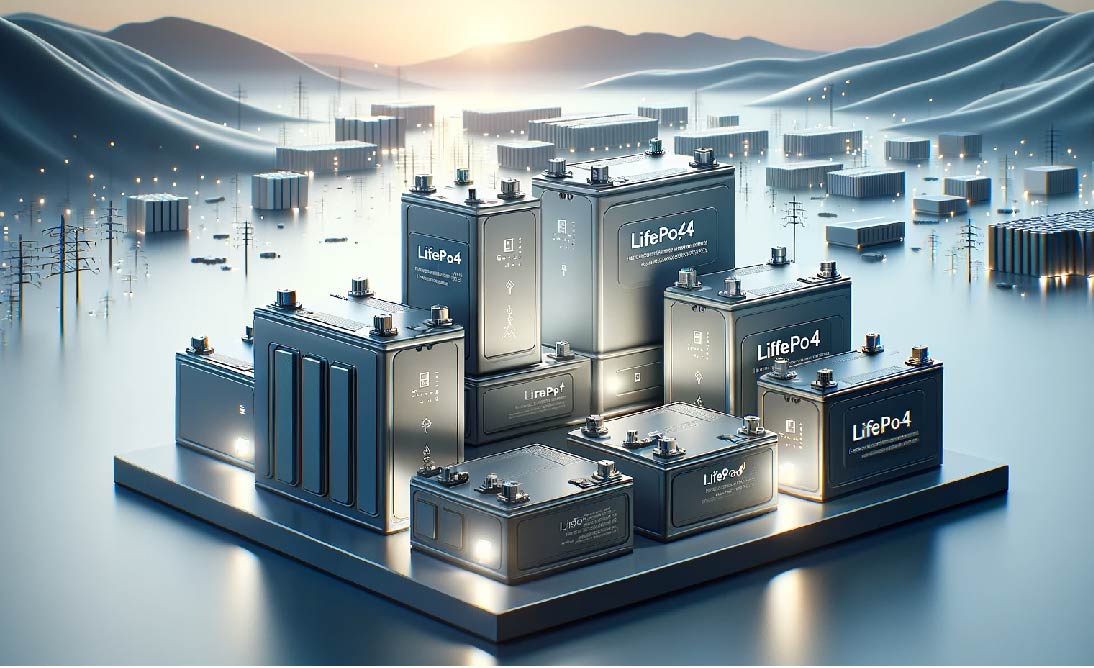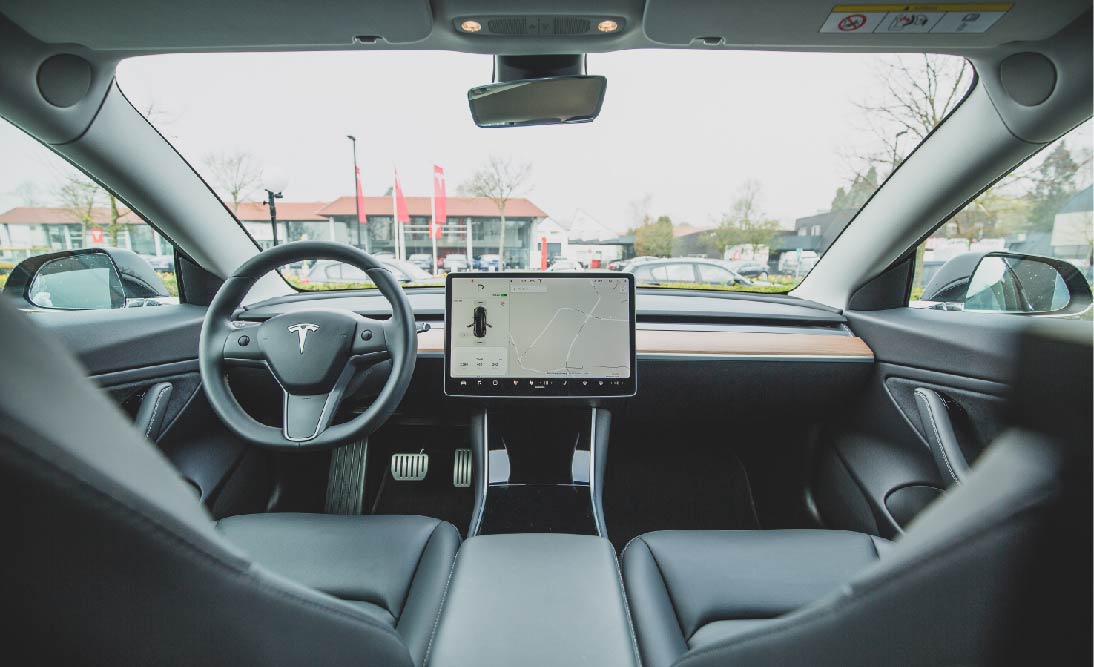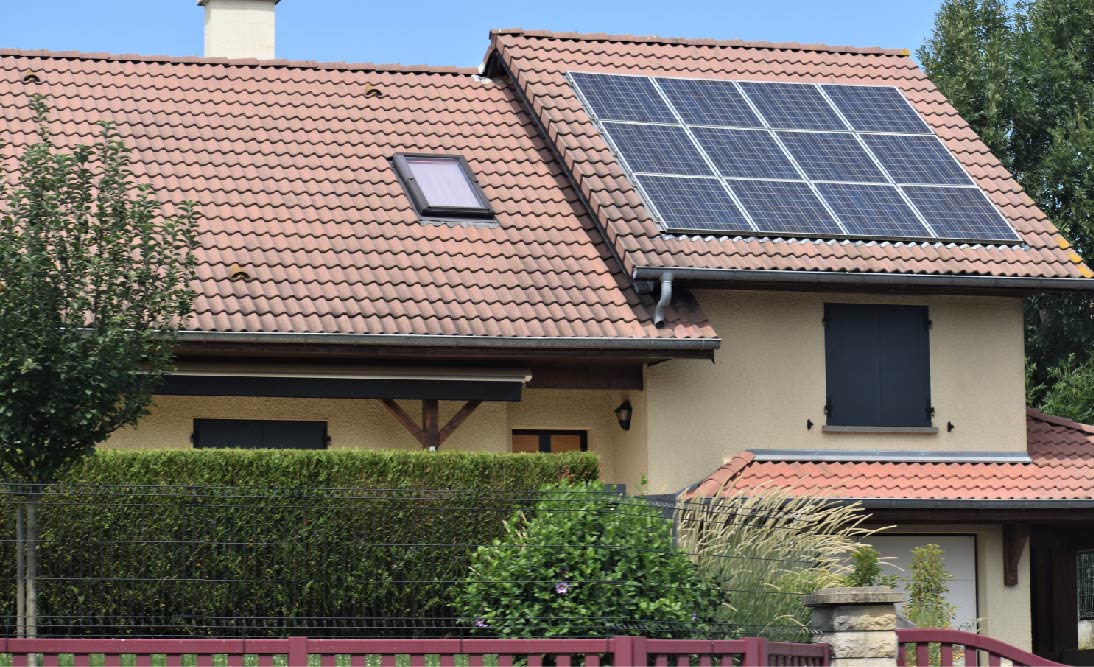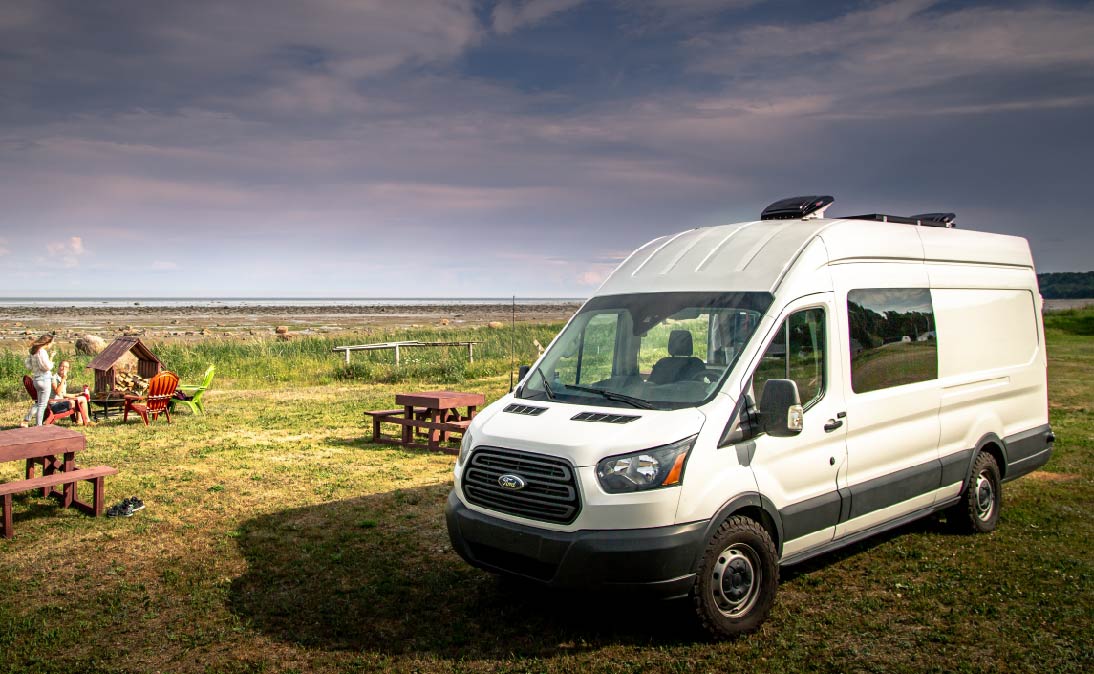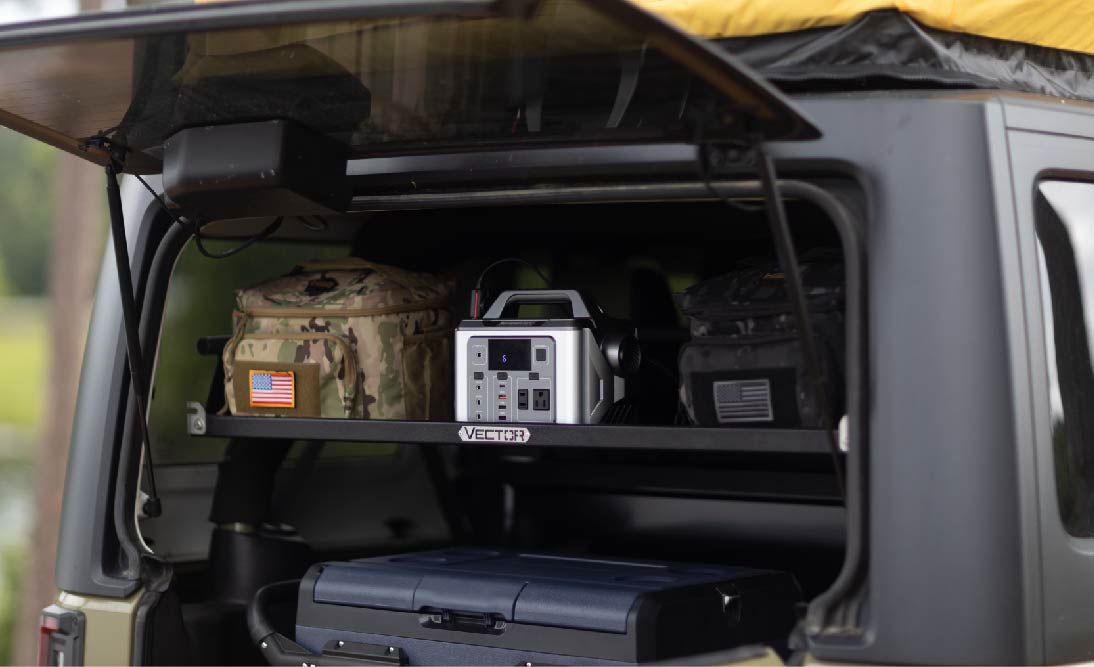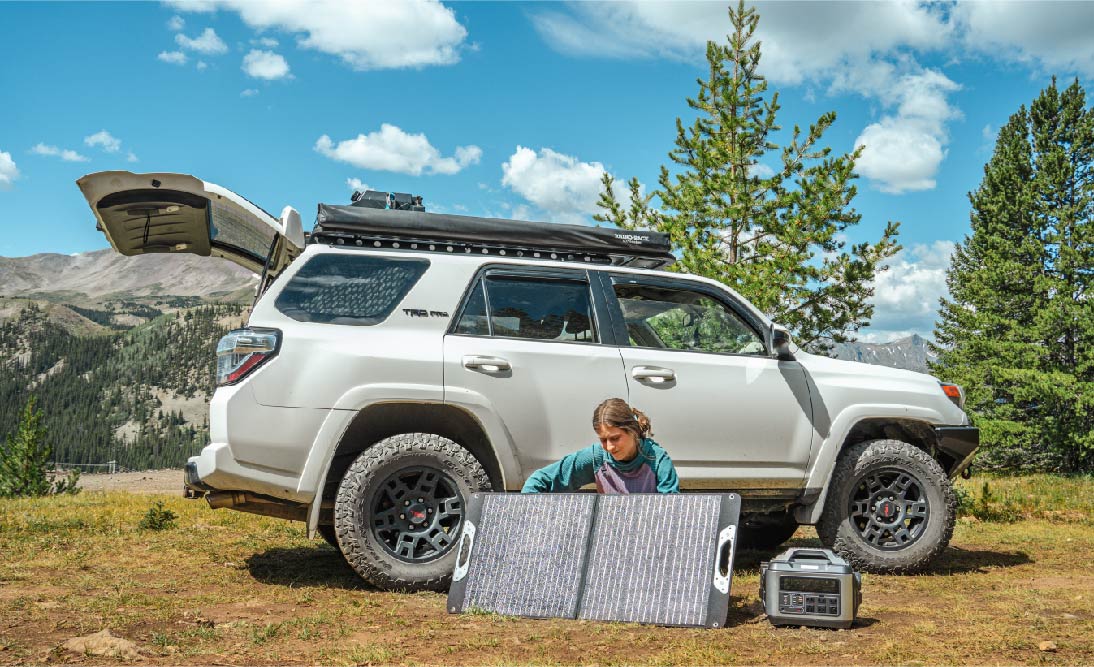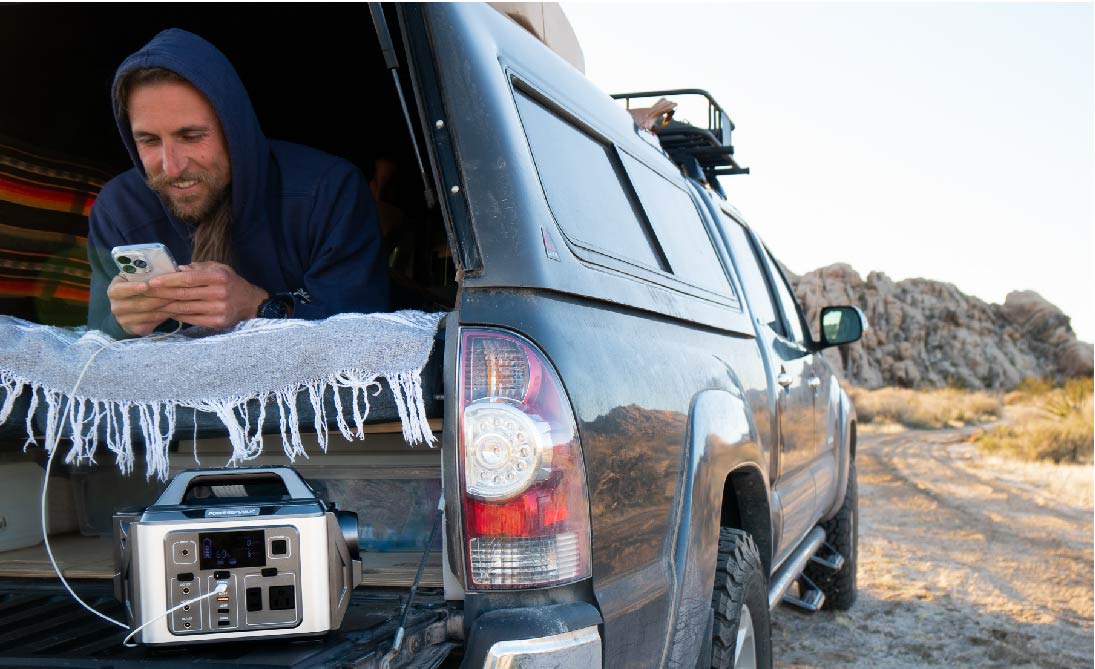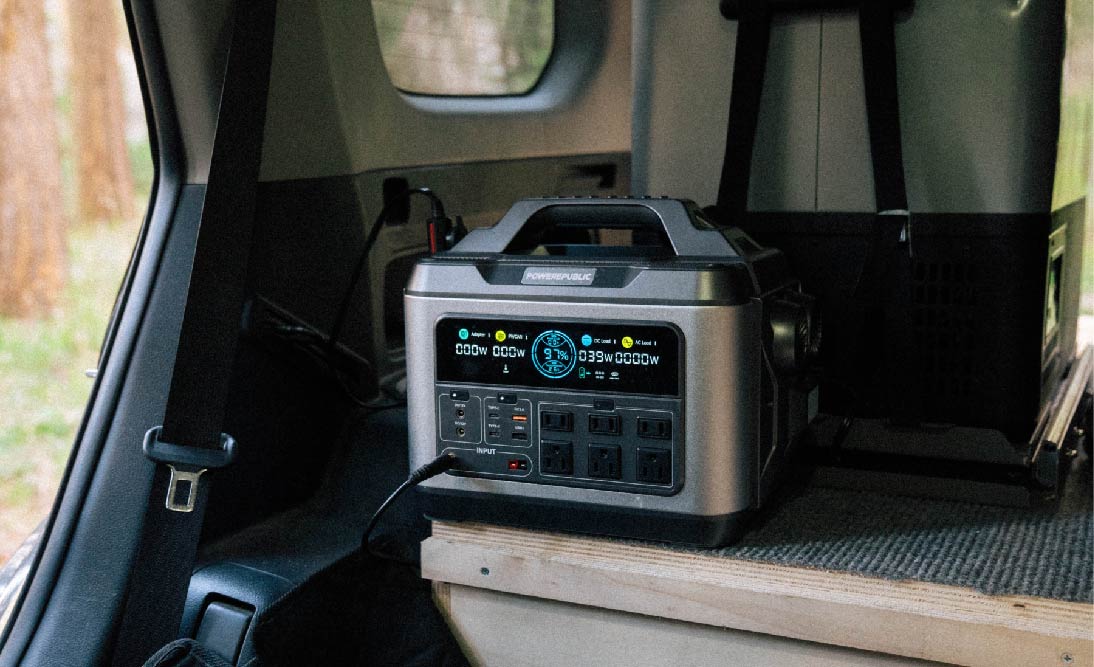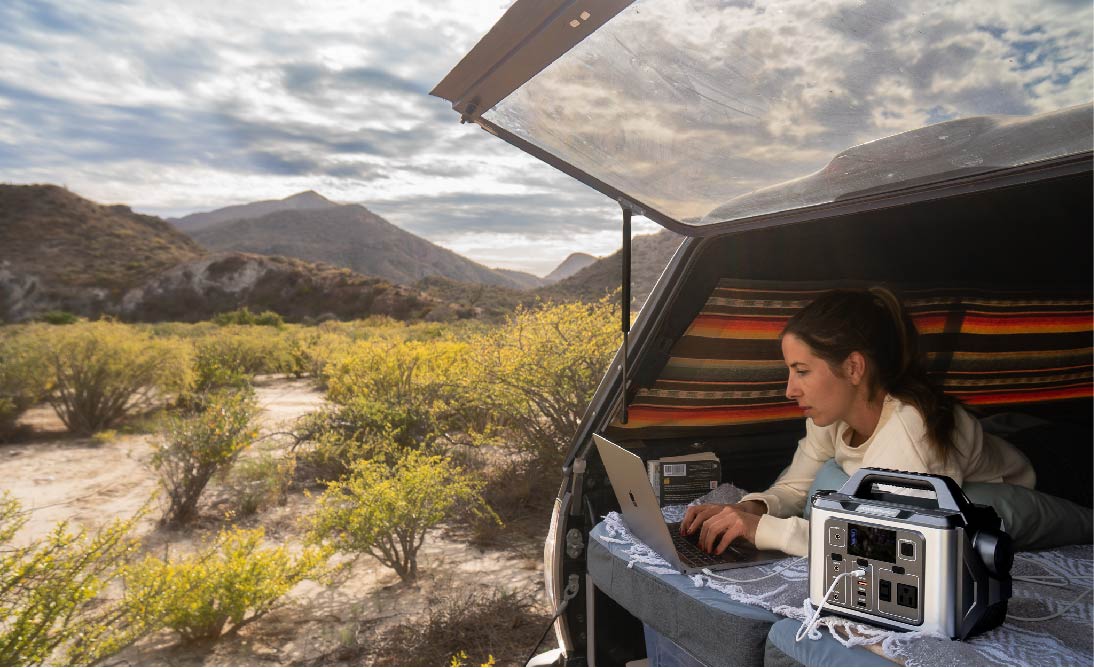Table Of Contents:
If you live in areas prone to extreme weather conditions or frequently experience power outages, having a whole house battery backup system to support you during these 'dark' moments and keep your appliances powered is crucial. These systems vary in terms of power output, battery capacity, size, fuel type, and pricing, depending on your power needs, the frequency of outages, your budget, and more.
We are going to discuss the price, performance, and benefits of some common whole home battery backup systems to guide you in making an informed choice and getting the most value for your money. We hope you find this information useful, whether you're considering a purchase or a DIY whole-house UPS setup.
Types Of Whole Home Battery Backup Systems

There are different types of home backup power systems, and each type has its way of operating, making it suitable for a whole-house UPS. We will list some common types of whole-house battery backups so that you can get a general idea of what's available.
Solar Power System with Battery Backup
-
Main Components: Solar panels, inverter, charge controller, batteries.
-
Operation: Solar panels generate electricity from sunlight, which is converted into DC power. The charge controller manages the battery charging. These systems can provide smaller-scale backup for short-term outages and can be upgraded for more extended power continuity with additional battery capacity.
Solar Generator/Portable Power Station
-
Main Components: Lithium-ion battery, inverter, outlets, solar input, and sometimes a gasoline/diesel generator.
-
Operation: Solar generators are portable units that store electricity from solar panels or other sources. They are typically suitable for smaller-scale, short-term backups due to their limited battery capacity. Explore POWEREPUBLIC portable power stations and solar generator kits.
Whole Home Battery Backup (Standard)
-
Main Components: Battery bank (e.g., lithium-ion or lead-acid), inverter, charge controller (if applicable).
-
Operation: Standard whole-home battery backup systems offer comprehensive, long-term power continuity, functioning like whole-house UPS. They are capable of providing electricity to your entire home for an extended duration during outages like a whole house UPS.
Whole Home Battery Backup(Advanced)
-
Main Components: Multiple battery banks, intelligent energy management system, sometimes integrated with solar panels.
-
Operation: Advanced systems can offer long-term power continuity and function like a whole-house UPS. They often integrate multiple battery banks for increased capacity and employ intelligent energy management systems for optimal use of stored energy. Solar panel integration can further enhance their long-term capabilities.
Generator with Battery Backup
-
Main Components: Standby generator, battery, transfer switch.
-
Operation: These setups combine a standby generator with a battery backup system. The generator can provide comprehensive, long-term power continuity for the entire house and function like a whole-house UPS. The battery serves as a buffer to ensure uninterrupted power during the transition between grid power loss and generator activation.
These systems vary in size, capacity, and features. The choice of the best type depends on your specific needs, budget, and whether you want a portable or permanent whole-home battery backup system. Some systems are designed for smaller-scale, short-term backup, while others provide comprehensive, long-term power continuity for your entire home.
What Influences the Pricing of Whole Home Battery Backup Systems?

Selecting the best whole-house battery backup system for your needs is crucial, considering the significant cost involved. Let's examine the price range of each type and list the factors that have the most significant influence on the price.
Price Range
To facilitate a better comparison of each type of whole-house battery backup system, let's refer to the table below:
|
System Type |
Suitable Scenarios |
Price Range |
|
Solar Power System |
Smaller-scale, short-term backup |
$1,000 - $5,000+ |
|
Solar Generator/Portable Power |
Smaller-scale, short-term backup |
$200 - $1,000+ |
|
Whole Home Battery Backup |
Comprehensive, long-term power continuity |
$5,000 - $20,000+ |
|
Whole Home Battery Backup |
Comprehensive, long-term power continuity |
$15,000 - $30,000+ |
|
Generator with Battery Backup |
Comprehensive, long-term power continuity |
$5,000 - $15,000+ |
Please note that these are approximate price ranges and can vary significantly based on factors like capacity, brand, and additional features if you are looking for a whole-house UPS.
Factors Affecting The Pricing
Here are factors influencing the pricing of whole house battery backup systems:
Battery Type and Capacity
-
The choice of battery type (e.g., lead-acid, lithium-ion) and its capacity significantly impact pricing. Different battery chemistries offer varying performance, lifespans, and costs.
-
A 10 kWh lead-acid battery system might cost approximately $4,000, while a similar 10 kWh lithium-ion system could be priced at $8,000.
System Type
-
The specific type of whole home battery backup system, whether basic or advanced, affects pricing. Advanced systems often come with added features and higher capacity.
-
A standard system may range from $6,000 to $12,000, while an advanced system with more capacity and features can cost from $15,000 to $30,000 or more.
System Size and Capacity
-
The size and capacity of the system directly correlate with the cost. Larger systems capable of delivering more power generally come with a higher price tag.
-
A 5 kWh system may cost approximately $5,000, whereas a 20 kWh system could be priced at $15,000 or more.
Inverter Quality and Capacity
-
The quality and capacity of the inverter have a direct impact on the cost. Higher-quality, more powerful inverters tend to command higher prices.
-
An entry-level inverter might be priced at $1,200, while a premium inverter with advanced features and higher capacity could cost $3,000 or more.
Battery Lifespan and Warranty
-
Systems with batteries designed for longer lifespans and comprehensive warranties often come at a higher price, reflecting the added value and peace of mind they offer.
-
Systems with a 5-year battery warranty might cost around $7,500, while a similar system with a 10-year battery warranty could be priced at $9,500 or more.
Energy Efficiency
-
More energy-efficient systems can command higher prices due to their ability to optimize the utilization of stored energy.
-
A basic system with average efficiency might be priced at $7,000, while a highly efficient system could cost $9,500 or more.
Brand and Manufacturer
-
Well-established and reputable brands often charge more for their systems due to brand recognition and trustworthiness.
-
A system from a reputable brand might be around $9,000, while a similar system from a lesser-known manufacturer could cost $7,000.
These factors collectively determine the overall pricing of whole home battery backup systems. It's crucial to evaluate your specific requirements, budget, and the trade-offs between upfront costs and long-term benefits when choosing the most suitable whole-house UPS for your needs. Prices can vary significantly based on these factors, emphasizing the importance of obtaining quotes and comparing options from different suppliers.
How To Choose The Ideal Whole Home Battery Backup System?

It's crucial to evaluate your specific requirements and budget, along with other factors, when selecting the best whole-house battery backup system.
Let’s take a look at them:
Assess Your Power Needs
-
Create a detailed list of essential appliances you want to power during an outage, including their wattage ratings. Include items like refrigerators, lights, sump pumps, heating/cooling systems, and communication devices.
-
Estimate the number of hours you want these devices to run during a power outage. For example, consider whether you need short-term backup (a few hours) or longer-term backup (several days).
Determine Battery Capacity
-
To calculate battery capacity, multiply the total wattage by the required hours of operation. This will give you the total kilowatt-hours (kWh) needed to power your essential devices during an outage.
-
For example, if you want to run a 1,000-watt refrigerator and a 500-watt sump pump for 6 hours, you'd need (1,000W + 500W) * 6 hours = 9 kWh of battery capacity.
Consider Battery Types
-
Lead-acid batteries, known for their cost-effectiveness, are a budget-friendly option for those looking for affordable battery solutions. These batteries come with a lower initial price tag, which makes them an attractive choice for users on a tight budget. However, they have certain limitations. Lead-acid batteries tend to have a shorter lifespan compared to other battery types, and they provide less energy storage capacity. This means they are better suited for short-term backup needs and applications with lower energy demands.
-
Lithium-ion batteries, while more expensive at the outset, offer several advantages that cater to long-term and high-performance requirements. These batteries come with a higher initial cost, but their extended lifespan justifies the investment. They also boast a significantly higher energy density, which means they can store and provide more power in a smaller and lighter package. Lithium-ion batteries are known for their fast-charging capabilities, ensuring you can quickly replenish your backup power when needed. This makes them an excellent choice for those who prioritize long-lasting and efficient battery solutions, particularly in applications where high energy demands are a necessity.
-
All POWEREPUBLIC portable power stations and solar generator kits have built-in lithium-ion and LiFePO4 batteries.
Evaluate System Compatibility
-
Check if the battery system you are considering is compatible with your existing power setup, whether it's a grid-tied system, off-grid solar, or backup generator. Ensure that your electrical system can safely integrate the battery.
Budget Consideration
-
Set a clear budget range that accounts for not only the cost of the battery itself but also installation costs, which can vary depending on your location and existing electrical setup.
-
Research potential rebates, incentives, and tax credits that may be available for energy storage systems in your area.
Look for Warranties and Lifespan
-
Review the manufacturer's warranty for the battery. Longer warranties often indicate confidence in the product's durability. Understand the terms and conditions of the warranty.
-
Consider the expected lifespan of the battery. While some lithium-ion batteries can last 10-15 years or more, lead-acid batteries typically have a shorter lifespan.
Research Brands and Reviews
-
Investigate reputable brands with a track record of producing reliable battery systems. Look for customer reviews and ratings to gauge user satisfaction and experiences.
-
Pay attention to safety features, as they are crucial in preventing overheating, overcharging, and other potential issues.
Consult with Professionals
-
Engage with a certified installer or energy expert who can assess your specific situation and advise you on the best battery system for your needs. They can perform an on-site evaluation, taking into account factors like local climate and energy consumption patterns.
By paying close attention to these factors, you can make an informed decision when choosing the ideal whole-house battery backup system that aligns with your unique requirements, budget, and long-term expectations.
Pros and Cons Of Whole Home Battery Backup Systems

While it may appear advantageous to have reliable power sources for home backup, it's important to recognize that different whole home battery backup systems come with their own set of pros and cons. Understanding both the advantages and drawbacks will empower you to make informed decisions.
To provide a more comprehensive and clear overview, let's examine their pros and cons using the following table:
|
System Type |
Pros |
Cons |
|
Solar Power System |
Utilizes renewable energy |
High upfront installation costs |
|
Low operating costs and grid savings |
Energy generation depends on weather conditions |
|
|
Reduces carbon footprint. |
Initial setup and maintenance may require professional help |
|
|
Provides grid independence |
Energy production is intermittent, with no power at night |
|
|
Solar Generator Kits |
Portable and versatile |
Limited power capacity |
|
Ideal for remote locations and outdoor activities |
Limited run time for larger appliances |
|
|
Easy to set up and use |
May not provide long-term whole home backup |
|
|
Quiet and emissions-free operation |
Not suitable for high-power needs |
|
|
Whole Home Battery Backup |
Provides uninterrupted power during outages |
Significant upfront and installation costs |
|
Optimizes self-consumption of solar energy |
Lifespan and performance may vary by battery type |
|
|
Reduces reliance on the grid |
Requires space for installation |
|
|
Scalable for increased capacity |
Efficiency decreases over time |
|
|
Generator with Battery Backup |
Combines generator reliability with battery backup |
Relies on fossil fuels, leading to emissions |
|
Provides extended power during extended outages |
Fuel and maintenance costs |
|
|
Suitable for high-power needs |
Potential noise and pollution |
|
|
Can be easily refueled for prolonged use |
Initial purchase and installation costs can be high |
Final Thoughts
In summary, choosing the ideal whole home battery backup system should be based on your unique needs and budget. We've discussed various options, each with its advantages and drawbacks. Solar power systems use renewable energy but come with higher upfront costs and depend on the weather. Solar generator kits are portable and versatile but may not handle long-term, high-power needs. Whole house battery backup systems offer uninterrupted power and grid independence, but they may require significant initial investment and could become less efficient over time. Generators with battery backup systems are reliable and powerful, but they involve ongoing fuel and maintenance costs.
Your choice should align with your specific situation and priorities. Assess your power needs, consider the type of battery, think about system compatibility, set a realistic budget, and seek professional advice. While every system has its pros and cons, the goal is to find the whole house UPS that best fits your needs, whether for outage backup or sustainable living.
Explore POWEREPUBLIC Portable Power Stations and Solar Generator Kits as Whole Home Battery Backups.
